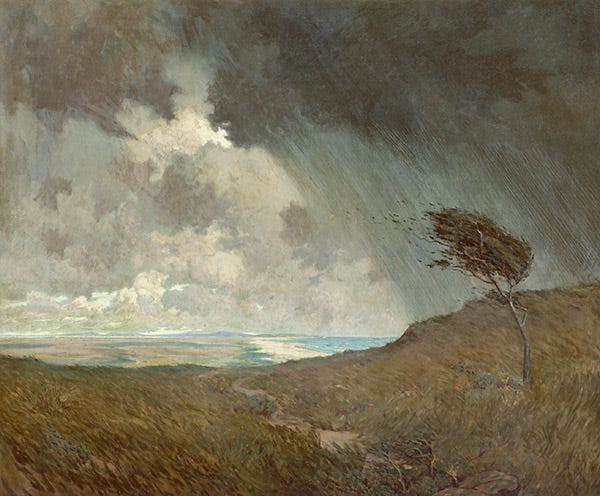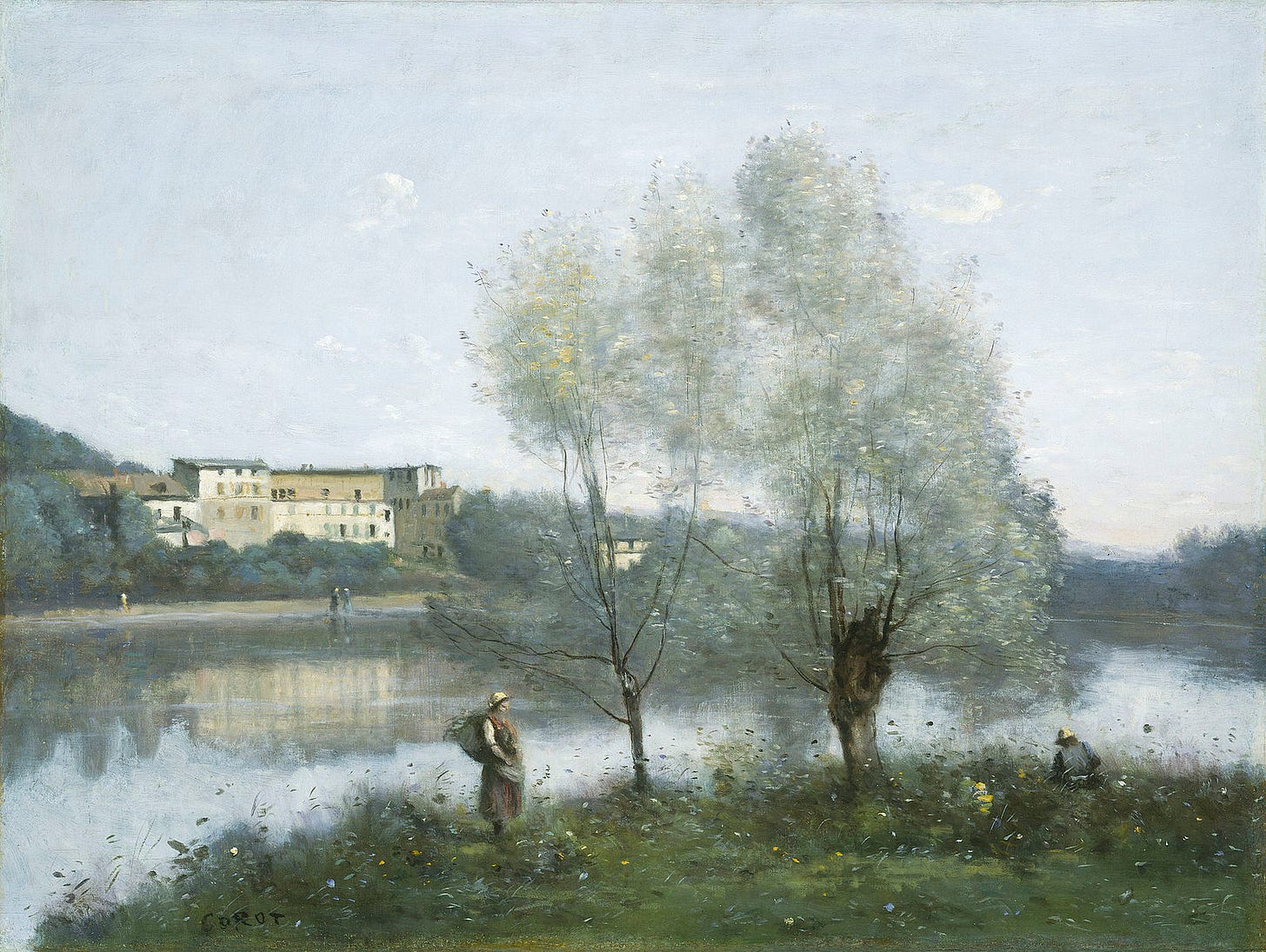Why poetry? Like song, poetry grips not just the mind but also the body through emotions. Dickinson said that she knew she read poetry when it took off the top of her head. Poetry changes your heart, and I need that.
There’s more. Language cannot express some essential things. But you make poems out of words, so how can they help? Through the images and renovation of language, poetry can accomplish what linear argument cannot. It can change me. I finish some poems without knowing what they mean, but nevertheless, I am open to seeing something new.
Enough abstraction: Let’s discuss a William Wordsworth poem (Iain McGilchrist reads it here) about an old man walking. These days, I walk toward my death; you do, too, although you don’t reflect on that as often. How we walk these miles matters.
Old Man Travelling (1798)
The little hedgerow birds,
That peck along the roads, regard him not.
He travels on, and in his face, his step,
His gait, is one expression: every limb,
His look and bending figure, all bespeak
A man who does not move with pain, but moves
With thought.—He is insensibly subdued
To settled quiet: he is one by whom
All effort seems forgotten; one to whom
Long patience hath such mild composure given,
That patience now doth seem a thing of which
He hath no need. He is by nature led
To peace so perfect that the young behold
With envy, what the Old Man hardly feels.
The man walks down a country lane bordered by hedgerows. He doesn’t disturb the birds in the hedges; do they notice he is there? The natural world shows us no solicitude, which is cold but opens space for deep beauty. The man travels as
.
I want to move that way—not warped by pain, but not anesthetized—to move with intention. And with conscious thought? Maybe not: “Insensibly subdued,” the walker moves without self-awareness. Yet, can you be intentional without conscious action?
I practiced martial arts as a younger man and got a black belt equivalent in Yīng Zhǎo Pài (Eagle Claw School), a super-trad form of kung fu. We used to quote Bruce Lee about having a mind like water.
Empty your mind, be formless. Shapeless, like water. If you put water into a cup, it becomes the cup. You put water into a bottle, and it becomes the bottle. You put it in a teapot, and it becomes the teapot. Now, water can flow or crash. Be water, my friend.
Laugh if you want; Lee was a transcendent athlete with interesting things to say about his craft. Perhaps I can translate Lee’s words as “Seek a mental and emotional state where you can create and respond immediately and fluently.” To that end, my Buddhist teacher told us to seek emptiness.
While learning to meditate, I encountered a paradox. I wanted a mind that flowed like a river instead of the chattering ‘monkey mind’ we all have. But when I worked self-consciously at that, the result was more chatter.
What to do? “Fake it till you make it,” another teacher said. That slogan comes from the 12-step movement, and those in recovery may need it. However, I wanted integrity, not to fake anything. So, I meditated and hoped for the best. There is hope in this poem. After the man’s “long patience,” he glides through the world.
All effort seems forgotten…He is by nature led.
How does nature lead? Richard Feynman’s celebrated Lectures on Physics discuss the minimum energy principle, which states that natural movement always follows the most efficient path. In optics, this is about
…the behaviour of light evident [that] was discovered by Fermat in about 1650, and it is called the principle of least time, or Fermat’s principle. His idea is this: out of all possible paths that it might take to get from one point to another, light takes the path that requires the shortest time.
Feynman expresses awe at this. Motion of all forms takes the path of least effort; this knits everything together. Likewise, the man moves with “settled quiet,” a clean and coherent inner light, like an immaculate note on a guitar
.Flowing like a river is part of what Christians call grace. Grace happens to you; you cannot force it. I am old and sick, yet I still move, travelling on in thought, not pain.
Six-hundred and fifty-one years ago today, that is, the eighth day of May in the year of our Lord 1373, Julian of Norwich received a series of revelations from Christ. She spent the rest of her life writing about them, producing the first book (that we know of) written in English by a woman. Her most famous line, “All shall be well, and all shall be well, and all manner of thing shall be well,” was quoted by T. S. Eliot in his Four Quartets, and people study and revere her around the world. Stay tuned; I may write about her.








I love the Impressionist art on this blog post! It will be so interesting to learn more about it.
I hope all is well with you and wish you all the best.
I always enjoy the diversity of thinkers you bring to bear, Bill, and Bruce Lee does indeed have some marvelously inspiring quotes.